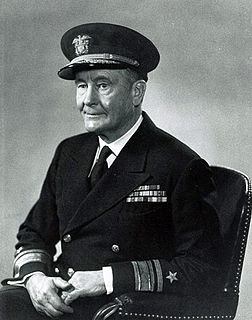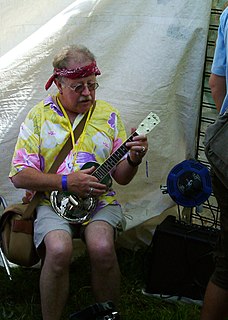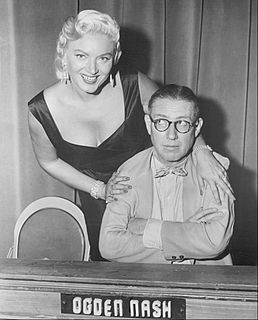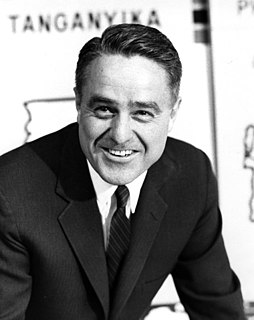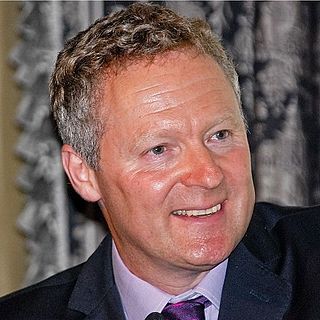A Quote by Samuel Eliot Morison
America was named after a man who discovered no part of the New World. History is like that, very chancy.
Related Quotes
America was discovered accidentally by a great seaman who was looking for something else; when discovered it was not wanted; and most of the exploration for the next fifty years was done in the hope of getting through or around it. America was named after a man who discovered no part of the New World. History is like that, very chancy.
It's very important to understand that World War II is at the base of this new policy. From the 1890s on, the U.S. was always imperialistic. We went after the Philippines, and we did the same in Cuba, in Hawaii. We controlled South America. Woodrow Wilson was not what he was supposed to be. He was very much a white man first. "The world must be made safe for democracy." It really accelerates after World War II.
History of America, Part I (1776-1966): Declaration of Independence, Constitutional Convention, Louisiana Purchase, Civil War, Reconstruction, World War I, Great Depression, New Deal, World War II, TV, Cold war, civil-rights movement, Vietnam. History of America, Part II (1967-present): the Super Bowl era. The Super Bowl has become Main Street’s Mardi Gras.
There's a teacher at the Renzo Gracie Academy in New York named John Danaher. He's leading this whole group of fighters named the Danaher Death Squad, and they're revolutionizing how that world works. I actually went and signed up for classes mostly because, man, if there's innovation like that happening in New York, I want to be around it.
The era I love most is the Federal period, just after the Revolution and the formation of the United States. The birth of America as a nation coincided with the Romantic era and I've always been thoroughly into the Romantics and I've always been thoroughly into America, particularly at the time when it was a brand new idea, when it was something brand new in the world. It was a very exciting time in the world because of the birth of America
I will not go so far as to say that to construct a history of thought without profound study of the mathematical ideas of successive epochs is like omitting Hamlet from the play which is named after him. That would be claiming too much. But it is certainly analogous to cutting out the part of Ophelia. This simile is singularly exact. For Ophelia is quite essential to the play, she is very charming . . . and a little mad.
In fourteen hundred ninety-two Columbus sailed the ocean blue and discovered America. Now, some have argued Columbus actually discovered the West Indies, or that Norsemen had discovered America centuries earlier, or that you really can't get credit for discovering a land already populated by indigenous people with a developed civilization. Those people are communists. Columbus discovered America.
